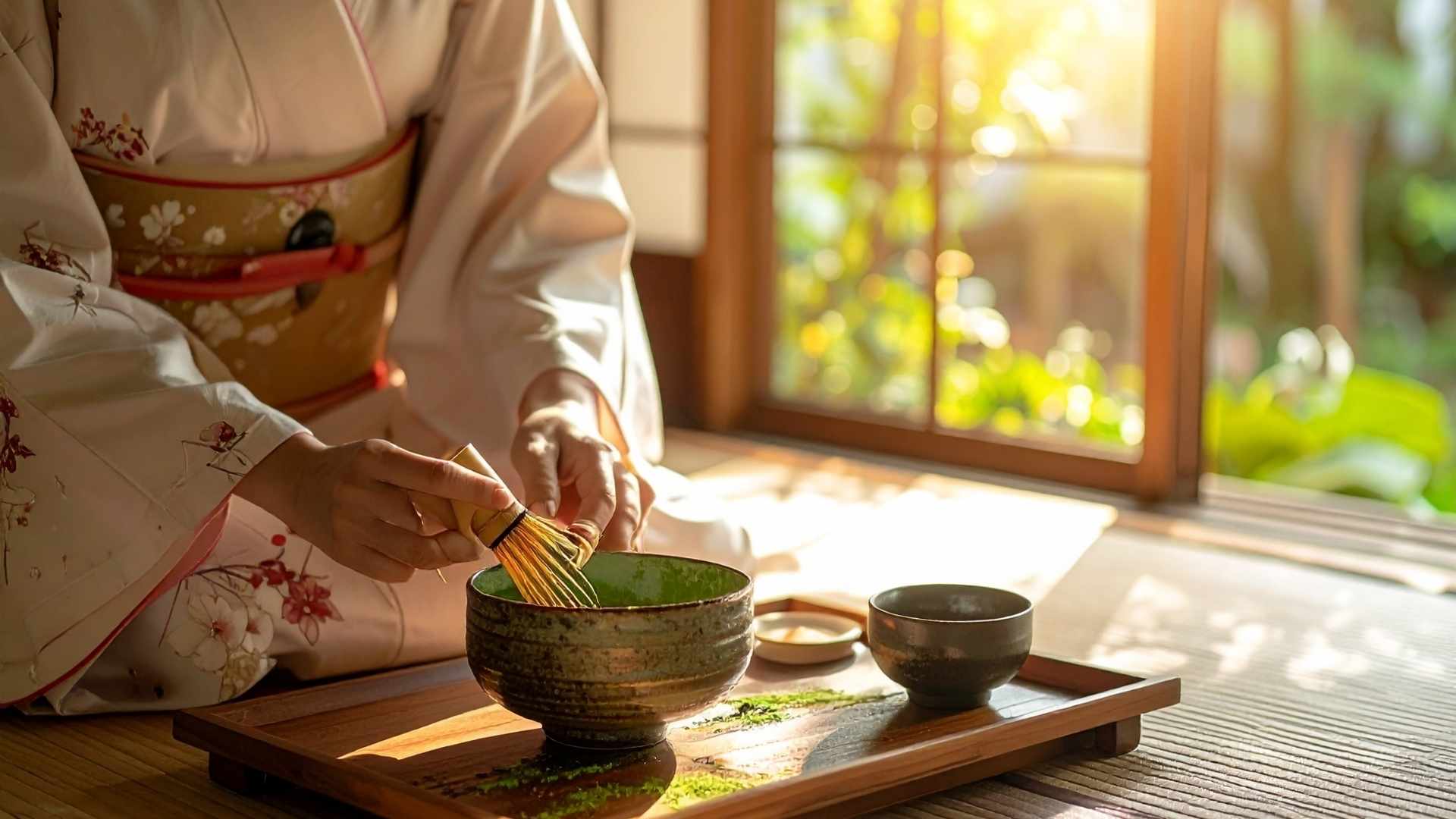Hello, matcha lovers!
I’m David, the proud owner of Matchaflix. Today, I want to share something that I am deeply passionate about: the rich matcha culture in Japan and how this wonderful beverage is part of the summer traditions in the Land of the Rising Sun.
The matcha we enjoy so much is not only known for its incredible health benefits but also for its deep roots in Japanese history and customs. Since ancient times, it has been an essential part of daily life in Japan, used not only in tea ceremonies but also in festivals and celebrations that mark the rhythm of the year.
In this article, we will discover how matcha becomes the star during the Japanese summer. We’ll take a look together at the festivities, events, and cultural practices where matcha plays a central role, analyzing how the Japanese celebrate this season of the year. From Obon, the festival of ancestors, to the refreshing Uchimizu, we will see how matcha connects people to their traditions and nature.
Join me on this cultural journey through Japan and discover how you can incorporate these customs into your own summer celebrations. I’m sure you’ll be surprised by the versatility and importance of this beverage that we cherish at Matchaflix.
Let’s get started!

Obon: The Festival of Ancestors and Matcha
Obon is one of the most important festivals in Japan, celebrated every year in August. This festival has its roots in ancient Buddhist traditions and is a special time when the Japanese honor their ancestors. It is believed that during Obon, the spirits of the ancestors return to this world to visit their families.
Rituals and the Role of Matcha
Matcha plays an important role in the ceremonies and offerings during Obon. In many Japanese homes, matcha is prepared as an offering for the spirits of the ancestors. This gesture symbolizes respect and gratitude. Additionally, it is believed that the aroma and flavor of matcha can attract the spirits and make them feel welcomed.
Festivities and Celebrations
Obon is celebrated in various ways across different regions of Japan, but the use of matcha is a constant. In many localities, festivals are organized with traditional dances known as Bon Odori. These dances, which often take place in parks and temples, are a way to welcome the spirits and celebrate life.
At these events, matcha is not only used in ceremonies but also enjoyed during family and community gatherings. It is common for families to prepare special meals that include matcha, such as desserts and cold drinks, to share with friends and neighbors.

Tanabata: The Star Festival
Tanabata, also known as the Star Festival, is a traditional Japanese celebration that takes place every year on July 7th. This festival is based on an ancient Chinese legend that tells the story of two lovers, Orihime (the weaver princess) and Hikoboshi (the shepherd of stars). According to the legend, these two lovers were separated by the Milky Way and are only allowed to reunite once a year, on the night of Tanabata.
Tanabata has a profound cultural significance as it symbolizes the power of love and hope. During this festival, the Japanese write their wishes on colorful strips of paper, known as tanzaku, and hang them on bamboo branches in the hope that they will come true.
Matcha during the Festivities
Matcha also finds its place in these celebrations, adding a special touch to the festivities. It is common to see tea ceremonies where matcha is prepared traditionally, allowing people to enjoy its unique flavor while reflecting on their wishes.
In addition to tea ceremonies, matcha is incorporated in various forms during Tanabata events. For example, it is popular to find Tanabata-themed desserts that include matcha, such as cakes, ice creams, and traditional sweets. These desserts are not only delicious but also add a cultural and festive element to the celebration.
Thematic matcha beverages are also a hit during Tanabata. From matcha frappés to lemonades with a hint of green tea, these refreshing drinks are perfect for enjoying on warm July nights. Food stalls at festivals often offer these options, allowing everyone to enjoy matcha in a creative and festive way.
In the second part of this article, we will discuss Uchimizu and various local festivals and summer fairs that will surprise you.
I look forward to seeing you there!




Share: